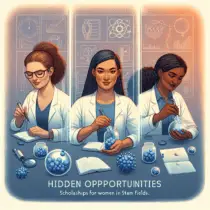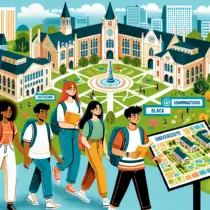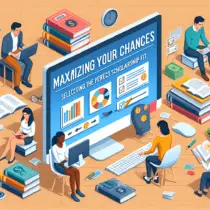Empowering the Next Generation of Women Innovators through STEM Scholarships
In recent years, the importance of female representation in science, technology, engineering, and mathematics (STEM) has become a global conversation. Encouraging young women to pursue careers in these fields not only benefits them personally but also fosters a more diverse and innovative technological landscape. One effective way to support the next generation of women innovators is through targeted STEM scholarships. Programs such as the "€7,000 Women in STEM and Leadership Scholarship in Germany, 2025" and the "$20,000 MBA Leadership Scholarships in the UK, 2024" play a crucial role in removing financial barriers and empowering women to achieve their professional dreams.
The challenge of ensuring gender diversity in STEM fields begins from early education and extends into professional careers. Historically, women have been underrepresented in these areas due to various socioeconomic and cultural factors. Scholarships focused on women provide a crucial stepping stone by reducing the financial burden of higher education and supporting their academic pursuits.
The "€7,000 Women in STEM and Leadership Scholarship in Germany, 2025," for instance, is specifically designed to support women who show potential in STEM disciplines. This scholarship not only helps recipients financially but also encourages them to assume leadership roles in their chosen fields. By providing such opportunities, countries like Germany are setting a precedent for other nations to follow, fostering an inclusive environment where women can excel.
On a broader scope, scholarships such as the "$20,000 MBA Leadership Scholarship in the UK, 2024" highlight the integral link between STEM and leadership. As technologies advance, the need for leaders who understand both business and scientific landscapes grows. This scholarship aims to catalyze this intersection, encouraging women who wish to enhance their technical skills with leadership education. It enables recipients to combine their STEM expertise with management capabilities, positioning them as future industry leaders.
These scholarships are more than financial aid; they are a statement of faith in the abilities of young women to lead significant changes in STEM. Offering opportunities to study in prestigious institutions also exposes recipients to networks and resources that are essential for career development. This access can be instrumental in overcoming the traditional barriers that often deter women from pursuing STEM careers.
Moreover, global organizations and governments are increasingly recognizing the power of education in gender equality initiatives. By directly investing in women’s education through scholarships, they are actively contributing to a more balanced and progressive society. Such initiatives are particularly important given the changing dynamics of the workforce, where STEM skills are incredibly valuable in dealing with contemporary challenges.
The impact of these scholarships is multi-fold. Besides empowering individuals, they also inspire younger generations. When girls see women breaking barriers and thriving in STEM careers, it instills a belief that they too can succeed in these fields. Schools and educators play an influential role here, as they can leverage success stories supported by scholarships to motivate students and emphasize the importance of pursuing STEM topics.
Additionally, collaboration between educational institutions, governments, and industries can amplify the effectiveness of these scholarships. By forming partnerships, they can create comprehensive programs that not only support educational pursuits but also provide mentoring, internships, and job placements. This holistic approach ensures that scholarship recipients are well-prepared to transition from academic to professional environments.
Public campaigns and awareness programs also play a crucial role in promoting these scholarships. By widening the discourse around the importance of women in STEM and publicizing available opportunities, young women worldwide can be better informed about the prospects in these fields. Such visibility can help reach ambitious individuals who may otherwise lack the information or encouragement needed to apply for these scholarships.
Support systems within universities and educational settings also contribute significantly to the success of women in STEM. Mentoring programs, women-focused societies, and resources that foster an inclusive study environment are critical in ensuring women feel welcomed and valued. When supported by scholarships, these systems can create a nurturing ecosystem that promotes learning, innovation, and leadership among women.
However, the journey does not end with awarding scholarships. Continued support and follow-up are vital in maximally leveraging the potential of these talented women. Institutions that offer such scholarships often build alumni networks to sustain engagement and promote lifelong learning. These networks can be business or initiative hubs where current scholars and alumni collaborate, exchange ideas, and innovate.
The future of STEM is intertwined with diverse perspectives that can drive creative solutions to complex problems. By empowering women through scholarships, society isn’t just supporting individual careers; it is investing in a more equitable and innovative future. It’s about creating opportunities, offering mentorship, and actively reshaping narratives around women in STEM careers.
In conclusion, scholarships dedicated to women in STEM like the "€7,000 Women in STEM and Leadership Scholarship in Germany, 2025," and the "$20,000 MBA Leadership Scholarships in the UK, 2024," represent essential tools in balancing gender representation in technological and scientific fields. They eliminate financial hurdles, reinforce the connection between leadership and technical prowess, and shine a light that guides the way for future generations of women innovators. Through such efforts, a more inclusive environment can be created, where every ambitious young woman has the opportunity and encouragement to pursue her goal of innovation and leadership in STEM.






